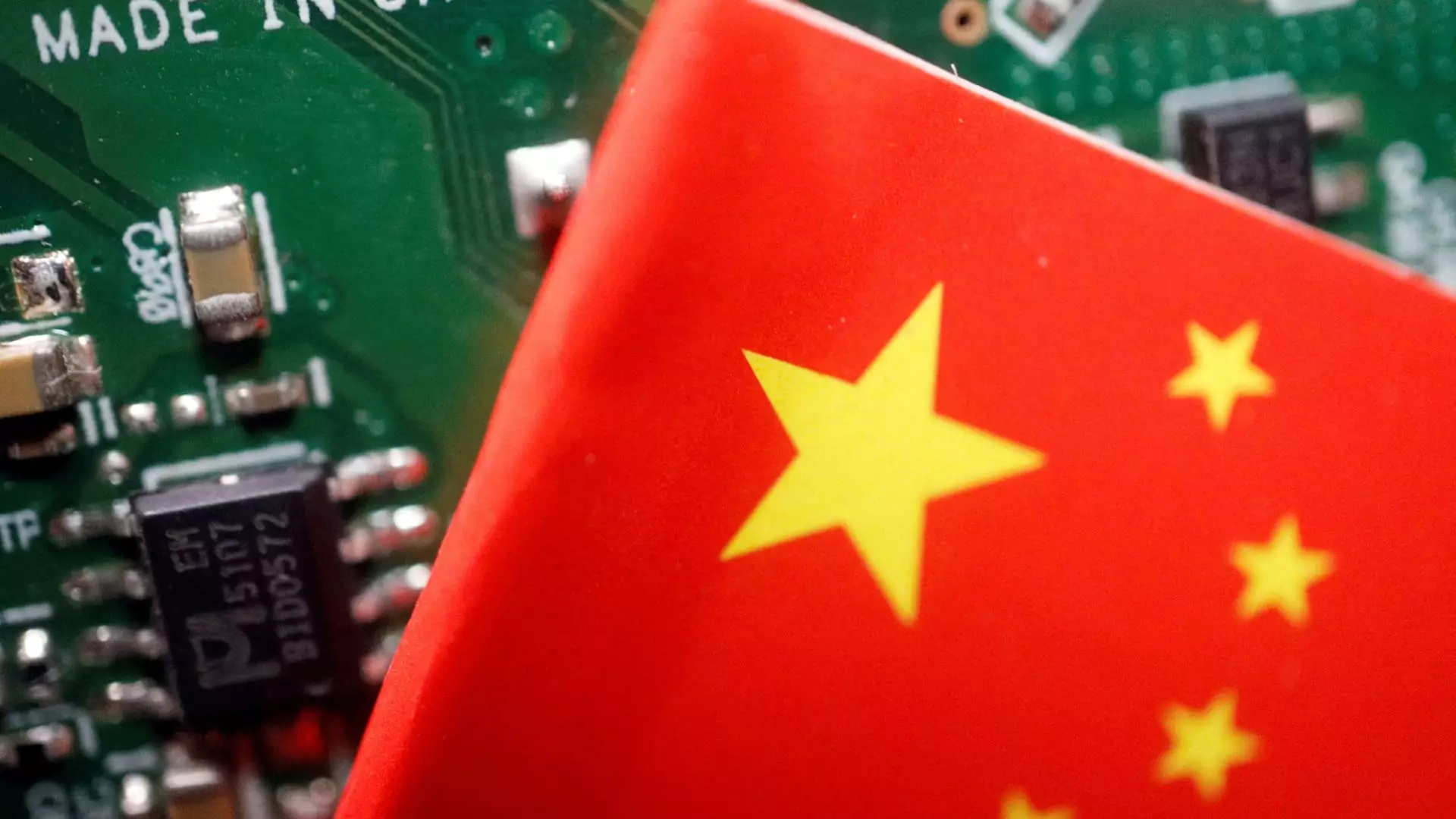On a recent Tuesday, major chip stocks across Asia experienced notable gains, largely ignoring the implications of the latest U.S. semiconductor export restrictions targeting China. These regulations, designed to diminish Beijing’s technological advancements, particularly in high-end chips, have sparked mixed market reactions. Dominating the scene was Taiwan Semiconductor Manufacturing Company (TSMC), recognized as the leading contract chip supplier globally, which saw its share price increase by an impressive 2.42%. This upward trend was echoed in Japan, where companies closely tied to the semiconductor sector reported strong gains. Tokyo Electron, Lasertec, Advantest, and Renesas Electronics all posted rises in their share values, signaling robust investor confidence in the regional chip industry despite external pressures.
Japanese technology stocks have shown remarkable resilience in the wake of uncertainty stirred by U.S. policy. Notably, the conglomerate SoftBank, which plays a strategic role by holding stakes in influential firms like British chip designer Arm, experienced a share increase of 3.6%. This performance reflects an optimistic market sentiment, indicating that investors are looking beyond the immediate effects of the tightening control over semiconductor technology exports to China. Furthermore, analysis from financial experts, including Derrick Irwin of Allspring Global Investments, suggests that the potential ramifications of these export bans on South Korean manufacturers, specifically Samsung and SK Hynix, may be less severe than predicted. He asserted that the U.S. and other regional markets would absorb the demand for high-bandwidth memory chips, thereby mitigating losses.
Interestingly, despite heightened fears surrounding the U.S. restrictions on high-bandwidth memory chips—which could directly impact industry titans such as SK Hynix and Samsung—stocks for these firms nonetheless experienced gains of 0.9% and 1.8%, respectively. Analysts are beginning to express skepticism regarding the long-term effectiveness of the imposed restrictions. The recent actions by the U.S. Department of Commerce, which included export controls for an extensive list of companies, emphasized an intent to restrict China’s access to advanced chip technology perceived as threats to U.S. national security. However, as South Korean firms adapt their strategies to possible market shifts, they may find alternatives beyond Chinese demand, which could work to their advantage.
The profound implications of the latest U.S. export controls resonate through the semiconductor industry as a whole. The Department of Commerce’s announcement, which categorized 140 new companies under export restrictions, reflects a concerted effort to impede China’s progress in critical technological sectors. Companies such as Naura Technology Group, Piotech, and ACM Research—major players in China’s chip manufacturing landscape—saw their stocks decline. In contrast, semiconductor production in China, represented by Semiconductor Manufacturing International Corporation (SMIC), experienced a dip of 1.5% in Hong Kong trading. These fluctuations indicate the immediate market response to the perceived escalation of technology competition between the U.S. and China.
As the geopolitical landscape continues to evolve, the challenges faced by companies operating within the semiconductor sector will likely persist. Nonetheless, the adaptability demonstrated by certain Asian firms suggests that there is significant resilience and potential for growth in alternative markets. Furthermore, the heightened regulatory environment, reinforced by new controls on manufacturing equipment and software tools essential for chip development, necessitates a strategic reevaluation for many players in the industry.
Looking ahead, investors and companies alike must prepare for an ongoing tussle defined not just by curbs and restrictions but also by innovation and market evolution. The capacity of firms to pivot and seize opportunities beyond immediate regulations will ultimately shape the future landscape of the semiconductor industry. As Asian companies continue to showcase their tenacity amid challenges, the development of this sector will warrant close attention from market watchers globally.

